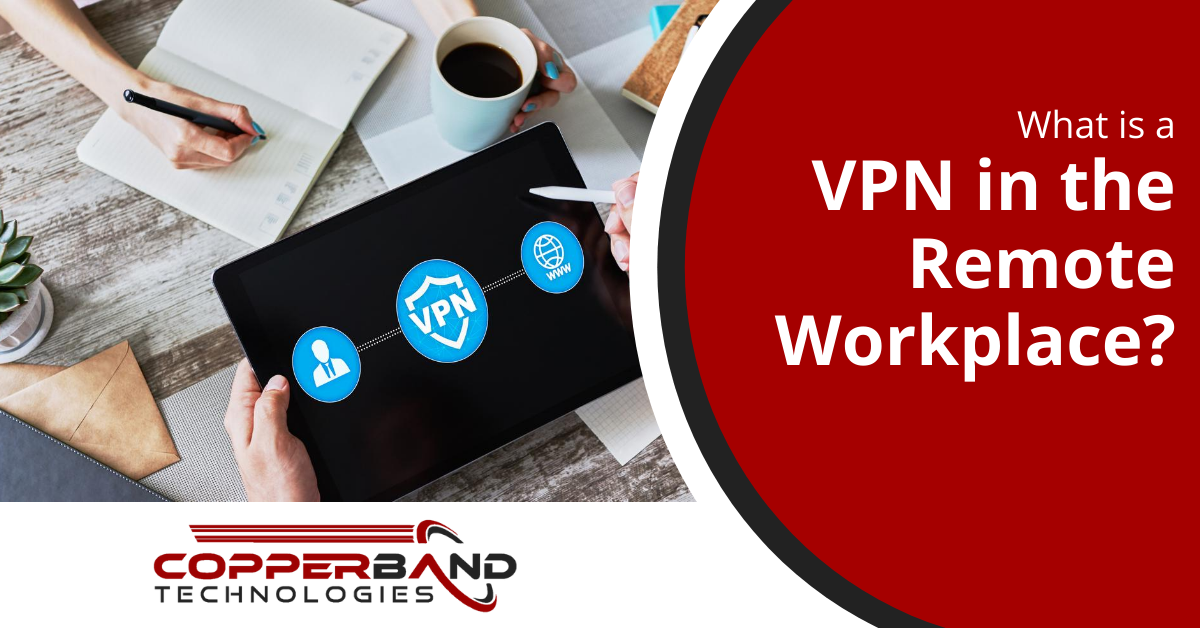The remote workforce has now become a permanent fixture in offices around the country. 77% of businesses expect to have more employees working from home 3+ days per week post-pandemic as they did prior to the pandemic. This means remote workers are having to adjust to new business IT processes, especially when it comes to connecting to office resources from their home office or remote workplace. One of the tools that companies put in place is a virtual private network (VPN), which offers a layer of encryption and security to online connections. But for the person using the VPN it mean a slightly different workflow than they’re used to. VPNs are designed to keep hackers from exploiting those remote connections and for that to happen remote workers need to use the VPN to connect, rather than just connecting online as they normally do.
Understanding the Different Types of VPNs
To understand the user experience when connecting to company assets through a VPN connection, you first need to understand the two main types of VPNs. Your experience may be slightly different depending upon which one your employer users. The two types of VPNs used are:
The best way to differentiate between the two is to think of the client server VPN as the more temporary and flexible connection and the site-to-site VPN as a permanent connection that covers the whole network.
Client Server VPN
The client server VPN includes an application that is downloaded onto the employee devices. This can be a computer or mobile device app. This type of connection is designed to secure a specific device’s remote session and doesn’t apply to another device on the network. These VPNs are commonly used for remote workers and employees who travel and use a variety of different Wi-Fi networks.
Site-to-Site VPN
The site-to-site VPN does not require you to download an application on your device, but it does require a VPN client to be connected to your network. This type of VPN is designed to provide a permanent secure connection for an entire network, meaning any devices on that network would also be protected by the VPN. The site-to-site VPN is typically a connection between the main office and a branch office that may have several employees that need secure connections.
How Does a VPN Work if You’re a Remote Worker?
If you’re working remotely, your employer can choose to use either the device-based VPN (client server) or network-based VPN (site-to-site). The main difference for you is where the VPN is being installed. If it’s a client-server VPN, you’ll need to install the VPN application on devices you use to connect to company assets. These assets can be:
Your company’s administrator will set up the VPN and include you as a user. From there, you will download the VPN client (if device-based) and then use that application when you connect online. You’ll have a username and password that you need to use to log into the VPN. Certain VPN apps have an “on” and “off” button that make it easy to ensure the encryption is on. The VPN reroutes your traffic through its secure servers, adding a layer of protection between your network and the internet. Some of the popular business VPNs to use for a remote and mobile workforce include the following.
What VPN’s Mean for Your Internet Traffic
VPNs provide a number of safeguards to secure internet connections. So, if you have a standard residential router with less security than the one at your office, your VPN traffic will be encrypted and secure. VPNs also monitor and track traffic, this allows employers to view traffic patterns and receive alerts of any suspicious activity. So, any websites you visit or cloud apps you access can be tracked by the VPN. Today’s VPNs are designed with the user experience in mind. So once the VPN client is set up, the sign-in process should be seamless, and allow you to work as you normally do without any interruptions.
What’s the Best Way for Your Company to Deploy a VPN?
Copperband Technologies can take a look at a company’s remote workforce and help put in place the best VPN strategy. We will help to secure connections while also being easy for users and administrators. Contact us today to schedule a consultation! Call 931.263.8000 or contact us.



